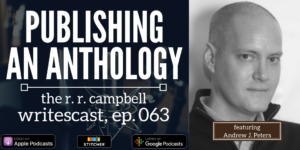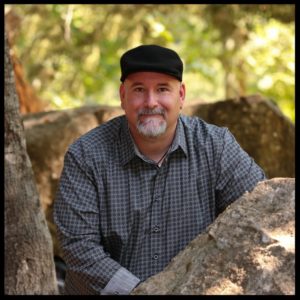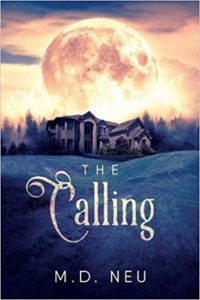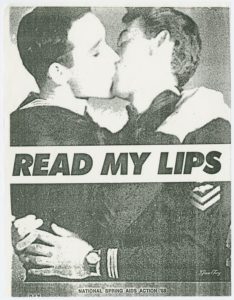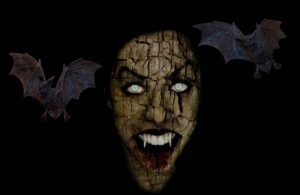
Well lookie here. I’ve got another Pop Up Swap! This one is with fellow fantasy author and fellow NineStar Press author J.P. Jackson, who also goes by Jeff.
Here’s a bit about the guy.
J.P. Jackson works as an IT analyst in healthcare during the day, where if cornered he’d confess to casting spells to ensure clinicians actually use the electronic medical charting system he configures and implements.
 At night, however, the writing happens, where demons, witches, and shapeshifters congregate around the kitchen table and general chaos ensues. The insurance company refuses to accept any more claims of ‘acts of the un-god’, and his husband of almost 22 years has very firmly put his foot down on any further wraith summonings in the basement. And apparently, imps aren’t house-trainable. Occasionally the odd ghost or member of the Fae community stops in for a glass of wine and stories are exchanged. Although the husband doesn’t know it, the two Chihuahuas are in cahoots with the spell casting.
At night, however, the writing happens, where demons, witches, and shapeshifters congregate around the kitchen table and general chaos ensues. The insurance company refuses to accept any more claims of ‘acts of the un-god’, and his husband of almost 22 years has very firmly put his foot down on any further wraith summonings in the basement. And apparently, imps aren’t house-trainable. Occasionally the odd ghost or member of the Fae community stops in for a glass of wine and stories are exchanged. Although the husband doesn’t know it, the two Chihuahuas are in cahoots with the spell casting.
J.P.’s other hobbies include hybridizing African Violets (thanks to grandma), extensive traveling and believe it or not, knitting. For more about him and his writing, visit his website or his Facebook page.
Jeff and I met through the NineStar authors’ Facebook page. He’s a social media whirlwind, and I quickly became a fan of his posts sharing book marketing ideas as well as his super friendly personality. Then I saw one of his books was called Magic or Die, which on title alone hooked my interest.
To back up a bit for anyone new to the Pop Up Swap, it’s where I exchange books with another author and we interview each other. I told Jeff Magic or Die was on my TBR list and maybe he’d be interested in doing an exchange. He said: “Sure, why not?” and he’d be happy to take a look at my Werecat series and here we are. You can check his interview of me here.
So I’ll start out with the book synopsis, and we’ll jump right into the interview.
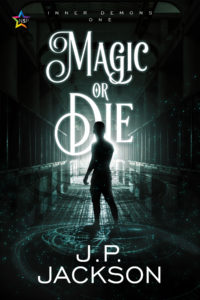 James Martin is a teacher, a powerful Psychic, and an alcoholic. He used to work for the Center for Magical Research and Development, a facility that houses people who can’t control their supernatural abilities, but left after one of his students was killed, turning to vodka to soothe his emotional pain. The problem is he still has one year left on his contract.
James Martin is a teacher, a powerful Psychic, and an alcoholic. He used to work for the Center for Magical Research and Development, a facility that houses people who can’t control their supernatural abilities, but left after one of his students was killed, turning to vodka to soothe his emotional pain. The problem is he still has one year left on his contract.
When James returns to the CMRD to fulfill the rest of his contract, he finds himself confronting the demons of his past and attempting to protect his new class from a possible death sentence, because if they don’t pass their final exams, they’ll be euthanized.
James also discovers that his class isn’t bringing in enough sponsors, the agencies and world governments who supply grants and ultimately purchase graduates of the CMRD, and that means no profit for the facility. James and his students face impossible odds—measure up to the facility’s unreachable standards or escape.
AP: Jeff, thanks so much for agreeing to do my Pop Up Swap. First things first, from our correspondence, it sounds like you’ve had an interesting life. You told me you’ve moved around a lot. Now you live in Edmonton, Alberta. I don’t know a lot about Edmonton or Alberta, and I suspect my website visitors don’t either. I tend to mainly get Americans around here and the occasional Brit. So what do we need to know about Edmonton to get an idea of what it’s like to live there?
JJ: Edmonton is a really pretty city, probably the prettiest city I’ve ever lived in. In the summer months all you can see are trees. Our downtown area has dedicated park spaces in between high-rises. We also have the North Saskatchewan River that flows right through the middle of the city.
Downtown borders the northern embankment, and the banks are high, so you get an excellent bird’s eye view of the river valley from most office towers and high-rise apartment buildings. We have a huge parkway through that belt along the river with paved paths, sculptures, and picnic areas. It connects twenty major parks and has over 160km of trails. It’s about 22 times larger than Central Park in New York.
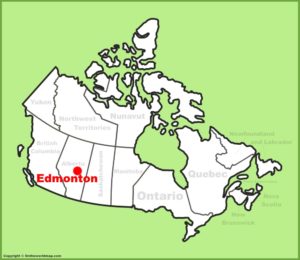 We also have the largest mall in North America if shopping is your thing. I avoid the mall at all costs. Too peopley.
We also have the largest mall in North America if shopping is your thing. I avoid the mall at all costs. Too peopley.
Edmonton is just under a million in population size, but with neighboring suburbs we’re over 1.3 million. It’s the most northern city with its population size in North America. We have great festivals here, including the largest Fringe Festival other than the original in Edinburgh, Scotland.
AP: Wow. I can tell you’ve adapted and fallen in love with the city, which is awesome to hear.
Let’s dig into the book. I really enjoyed it! For me, two things stood out. You write magic action sequences so well, with really vibrant imagery. I loved the scene where James gets all his students together for the first time, and they use their magic to hover in the air, cast light, make flames and snowflakes. I imagined the whole room spinning around like a kaleidoscope, and it was a sweet experience for the students who had been treated like their magical powers were freakish and dangerous, like they were freakish and dangerous.
Then, I really liked the main character James and his love interest Isaiah. I’ve got some questions about your approach to both of those aspects of the story, but I think I’ll start with something more general.
The story kind of straddles the YA/NA line. While I got the impression the main character and narrator James was at least in his late 20s, his students are in their late teens or early twenties, and there’s lots of young adultish snark and bonding and dramatics. Did you have a particular audience in mind?
JJ: This probably sounds like a bad thing to admit but I didn’t have a particular audience in mind. I simply wrote a story. The idea was spurred on by my editor at the time. Ninestar Press was asking for submissions for an anthology, and the theme was “Teacher’s Pet.” I was asked to write something, and it really wasn’t striking any chords of interest until my editor said, “Think of a werewolf in an anger management class who falls for his facilitator.”
That got me thinking and then before I knew it, Annabelle and Isaiah were born, and the idea of a really broken teacher…the rest of it just kind of happened!
AP: Your bio mentions magic. I assume (hope!) in a playful way. But it did make me curious about how you accumulated your knowledge of demon possessions and witchcraft, which are big facets of the story. Have you explored arcane arts in real life?
JJ: Yup. Absolutely. I was obsessed with horror and paranormal movies and books in my early teens and still am. I read books on psychic phenomenon, UFO’s, and unexplained happenings. Ghosts and poltergeists too. And then when I was in my early twenties, I stumbled upon an adult learning class on Wicca.
I signed up and met some folks. We eventually formed our own coven, and after several years I was initiated as a Third Degree High Priest. I’ve taken Comparative Religion classes in University as well.
I’d say I’m more spiritual than religious. I‘ll light candles and say a quick ‘thank you’ to whoever might be listening. I thank inanimate objects. I touch trees with respect and reverence. I often hear things others do not, and I see shadows and spirits everywhere. I am superstitious and regularly cast protection spells. I completely respect and believe thoughts have energy and when directed with intent can have an effect on my surroundings. All this history and experience have exposed me to some rather unexplainable situations.
AP: That’s deeper than what I expected! You’re basically talking to an atheist who was raised in a Lutheran Christmas Eve-and-(sometimes)-Easter church-going family, but I do find spirituality fascinating.
So, getting a bit personal again, I dig stories that have main characters who aren’t physically perfect and conventionally beautiful. It actually makes it harder for me to get behind that kind of character because some sour place inside me always rises up to say: [sarcastic voice] Oh, look here, another hero/heroine who has it all, but I’m supposed to be on the edge of my seat wondering if they’re going to succeed against all odds.
James starts out as a bit of a wreck physically, and he mentions he’s got a little extra around the middle. One of the reasons he’s attracted to Isaiah is because Isaiah is a hairy-bodied guy with a beard, pretty much a bear cub I think you’d say. I thought it was really cool the two guys weren’t worked-out, smooth hunks, which you see so much in gay fiction.
Now the personal question: how much of that reflects your own preferences and attitudes toward gay male body image? I mean, I couldn’t resist since your Twitter handle is CanuckBear88.
JJ: HA! Busted. In all honesty, I love me some muscle-bears. Thing is, most of us are not dedicated to doing what it takes to achieve and maintain that kind of body. I know several body builders, and it’s not for the feint of heart.
via GIPHY
So when I set out to write Magic or Die, I wanted my characters to be more ordinary Joes. The cast is extraordinary in other ways. James and Isaiah didn’t need to be gym rats as well. Besides I think it’s more interesting to read about people who are a little more like you and me. And I think it makes the characters more relatable. People can see themselves easier.
AP: 100% agreed about relatability. Another thing we have in common is we both started writing professionally later in life.
What’s your story? I’m especially interested in how you picked up your writing craft whether through traditional writing classes or something else. You definitely have a keen sense of pacing for genre fiction as well as incorporating sensory imagery into the action.
JJ: WOW! The compliments. Thank you. I’ve always been creative. Whether it was drawing, painting, sculpting, music, writing, or theater. Even raising African Violets has a touch of art to it. When I hybridize, choosing the characteristics you want to get out of the progeny is science, but having the foresight to see the potential in crossing two plants to possibly get something new and fantastic? That’s creative. I have no idea how I ended up in IT, yet, here I am.
Confession time: I’ve only ever took one creative writing course. I was an international student studying in the United States, and because I was ‘international’ I had to take English. So, I went to my Dean of International Studies and pleaded my case as to why taking English was a waste of time and money. But the credit was just part of the program, so in a compromise they let me choose the English course I wanted to take. I took Intro to Creative Writing. Towards the end of the semester my professor asked if I’d be interested in changing majors. That wasn’t really part of my plan, so I declined.
But here’s a secret – I read a lot. Up to 50 books a year. And everything from NYT Best Sellers to emerging LGBTQ+ authors, horror, mystery, romance – all of it. I think that helps me in many other ways.
AP: Oh, it definitely does. By most definitions I’m self-taught as well. I tried to take as many creative writing courses in college as my major would allow, and then as an upperclassman, I had to submit a writing sample in order to get into advanced creative writing courses, which were pretty much limited to English majors. I was crushed when I wasn’t selected for the twenty-seat class.
Back to reading though, I’m not as well-read in urban fantasy as I probably should be. I’ll share with you some of my favorite authors and titles, and I’m curious about yours since you’re so involved in the genre.
I like some Anne Rice, which maybe doesn’t count since she’s so gothic, but she’s taken on some paranormal themes I loved like her Songs of the Seraphim series (angels) and The Wolf Gift (werewolves). Recently, I discovered a début author K.D. Edwards who launched a gay-themed series The Tarot Sequence that’s a lot of fun. And, one of my inspirations for Werecat was Allison Moon’s awesome lesbian werewolf series Tales from the Pack.
What are some of your faves?
JJ: Anne Rice was a go-to for many years, but for me it was The Vampire Chronicles and The Mayfair Witches. Then there was Stephen King. I’ve read most of Robert Jordan’s Wheel of Time series and Piers Anthony, Melanie Rawn, and Stephen R. Donaldson.
But when I was growing up, the literature I was coming across either fell into the realm of horror or fantasy. It wasn’t until the late 90’s when I started coming across urban fantasy and read books by J.K. Rowling, Stephanie Meyer, Charlaine Harris, and Patricia Briggs. Deborah Harkness’ The All Souls Trilogy is another good one, as is Jim Butcher’s The Dresden Files.
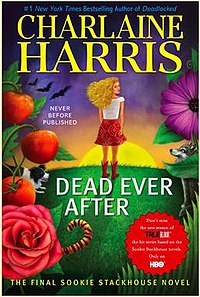
AP: Cool. I can tick off a couple of those authors like Robert Jordan, Rowling of course, and Jim Butcher. Because of my Werecat series, a lot of people tell me I should try Charlaine Harris, but I haven’t gotten around to it.
JJ: Nowadays I spend my money and read books by folks who are representing the LGBTQ+ community across genres. M.D. Neu (sci-fi and paranormal), Brooklyn Ray (dark paranormal), Glenn Quigley (historical fantasy), E.M. Hamill (sci-fi and urban fantasy), S.A. Stovall (fantasy and crime noir), Brandon Witt (fantasy, cozy mysteries, and M/M romance), Rick Reed (horror and M/M romance), Rob Rosen (sci-fi and urban fantasy) all top my list.
AP: Great! Thanks for the suggestions. Let’s move back to your book. Beyond the non-conventional physical aspects of James and Isaiah, I’d say you got pretty gutsy in depicting a teacher/student relationship. To be clear, both guys are beyond college-age so it’s not an illegal or even a barely legal situation. But it does raise questions about professional boundaries. Did you set out to tackle that kind of relationship? What are your hopes regarding what readers will take away from your portrayal of their relationship?
JJ: Yeah, I struggled hard with that. It was one of the reasons I wasn’t that interested in the premise of the story to begin with – remember, the one my editor really wanted me to write?
So, I had to think of a way around it. And the only way I could was to make sure everyone was an adult. Even still, some readers were really put off by the relationship – and hey – I get it. It’s, as one reviewer put it, squicky.
But at the same time, that’s exactly where I wanted people to sit when it came to James. Sure, he’s the hero, but he’s a little broken and maybe doesn’t always make the best decisions. I think that makes him more relatable. James thinks with his little head. I never really say that, but let’s face it, what’s the motivating factor for even considering a relationship with someone when there’s that power imbalance like a student/teacher set up? So, if readers are wriggling a little while reading it, that’s good. I kind of wanted them to.
I also know what some gay men are like. I sure as hell know what I was like when I was young and single. I couldn’t wait to get my paws on whatever guy would have me, and if he was older and hairy – fantastic! And that’s what I was remembering when I wrote James and Isaiah meeting for the first time. Not everyone is the same, but for me, if I find someone physically attractive then the flirtation gets dialed way up until I get what I want. Isaiah was kind of like that in the book. As much as James liked Isaiah, the attraction was quite mutual.
Readers will find in the next books their relationship will begin to deepen and go beyond that initial lust.
AP: Okay, I’m going to throw one of those deep questions at you. You write in first person POV, and I found James’ voice assured, a bit snarky and cynical (which certainly fits considering what he’s been through), and fairly circumspect about the world. The only thing he knows for certain is it’s his job to protect the people he cares about, which includes his sister who’s gone down a dark path and then Isaiah and the other students.
This is a two-parter. First, how much of that would you say is you?
Second, the deeper part, what do you hope to say about the world through Magic or Die and your other work? Obviously, you write fiction and it’s far removed from the world we live in, but I’m always curious about the underlying values and assumptions, which provide the foundation for any story.
JJ: To answer your first question: None of it. I doubt EVERYTHING I do, but then I give in to “well, let’s just see what happens.” My husband plans for everything, all the contingencies, all the emergencies, and always has a plan of action. I kind of wish I was a little more like that. Do I care about others? Maybe. Those close to me for sure. Do I want the best for mankind – sure, but am I the kind of person to go out there and be altruistic – not really. James is that hero, despite his piss-poor decision-making skills.
Regarding your second question, I think Magic or Die is about possibilities. What would Ning be like if she could control her Yuki-ono? How about Chris? If he wasn’t so angry would the fire wolf come out as often? What change could they affect on the world?
I think there’s an undertone of general acceptance of those who are different from us – that underneath our differences we’re really all just people who love and fear and bleed.
But mostly I want readers to walk away from my stories wondering ‘what if?’ What would it be like in a world where magic was truly possible? And who’s to say that it isn’t – maybe we just don’t see it because the vast majority of us don’t believe in it.
AP: Cool. Magic or Die is the start of an adventure series for James, Isaiah and their magical pals. Are you holding your cards close regarding what happens next, or can you tell me what direction the story is headed in? Also, do you have a title and a release date for the next installment?
JJ: Well, I can tell you this. I plan to have one book for each of the main characters but as seen through the eyes of Isaiah and James. Magic or Die is told from James’s perspective, and then the next book, Blood and Sacrifice, is told from Isaiah’s perspective. I think I’ll bounce back and forth with those.
The first book is very much an origin story, how the group came together. Blood and Sacrifice is about tough choices and testing the saying “blood is thicker than water,” so this book is really centering on James and his sister.
But while that is happening, the rest of the gang are going through their own issues. Ning’s Yuki-Ona wants her body found so I think we’ll be travelling to Japan for that book. Chris makes an interesting discovery about his mirror twin who has died, which prompts a difficult decision that won’t be resolved until his book. And that may end up taking the entire crew back to the CMRD.
Annabelle requires training so she’ll be off to Varna, Bulgaria where her Coven is located. That book will be super creepy and fun to write. And then there’s Isaiah. His Asmodeus demon is going to make a super difficult request, and Isaiah already knows what it is, but he has no idea how to handle it.
So there you have it. That should be it. Sounds simple, right? It isn’t. LOL. What did I get myself into?
AP: Piece of cake. 😊So how’d you end up at NineStar Press?
JJ: By complete chance! My first book Daimonion, Book One of the Apocalypse took me about three years to write, and then another two to edit. Once I had a polished manuscript, I started querying agents and publishers, but I had not come across NineStar Press. I had many rejection letters and even more agents and publishing houses that never responded to my inquiries. I was starting to get to the point where self-publishing was looking like my only option.
Then I found #pitchmas on Twitter – basically it was pitch your book, tell us your genre and intended audience in 144 characters or less, and any agents/publishers who like your tweet want you to submit your manuscript to them. So, I threw a tweet out into the universe, and then promptly forgot about all of it. It was the Christmas season and that’s always really busy.
That year, the hubby and I went to Puerto Vallarta, Mexico for Christmas, and I remember a couple of days after arriving in Mexico, my phone buzzed while we were sitting in a café and I had WiFi. The notification was “NineStar Press likes your tweet.” Honestly, I had no idea what NineStar had liked. So I put my phone away, because I was on vacation and it wasn’t until the next day when I checked it out – NineStar Press had liked my #pitchmas tweet!
I didn’t have my laptop with me so I couldn’t respond until about a week later. I found out about NineStar Press, what their submission requirements were, and sent off a query to them with a copy of Daimonion, and hoped for the best. Again, completely forgot about it, as work was nuts.
Then on January 12, 2017, I got an email from NineStar Press, “We’d like to offer you…”
I was at work when that email came in. Jumped around and screamed like a schoolgirl. It was insane, and I’ll never forget it.
AP: I love those stories. And I’ll say maybe the only good thing about having a full-time day job while being a writer is those crazy moments when you check your phone in the office and you get some good news and have to figure out a way to contain yourself and focus on what you’re supposed to be doing. It keeps life interesting!
Anything else you’ve got coming up you’d like readers to know about?
JJ: I’m about half way through first draft of Blood and Sacrifice, Book #2 Inner Demons. I have several chapters written of Nephilim, Book 2 of the Apocalypse. And then, because my brain does this to me, I’ve started another project, Summoned. This one is an M/M paranormal romance with witches, werewolves and the Fae. I’m about halfway through the first draft of that too.
AP: You’re a busy guy! Best of luck and thanks again for coming over to my blog. 😊
Curious about Jeff’s Magic or Die? Pick up a copy at the NineStar Press webstore, Amazon, iTunes, or BN.com.
 Share on Facebook
Share on Facebook
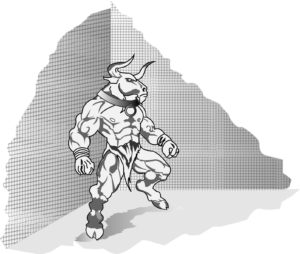
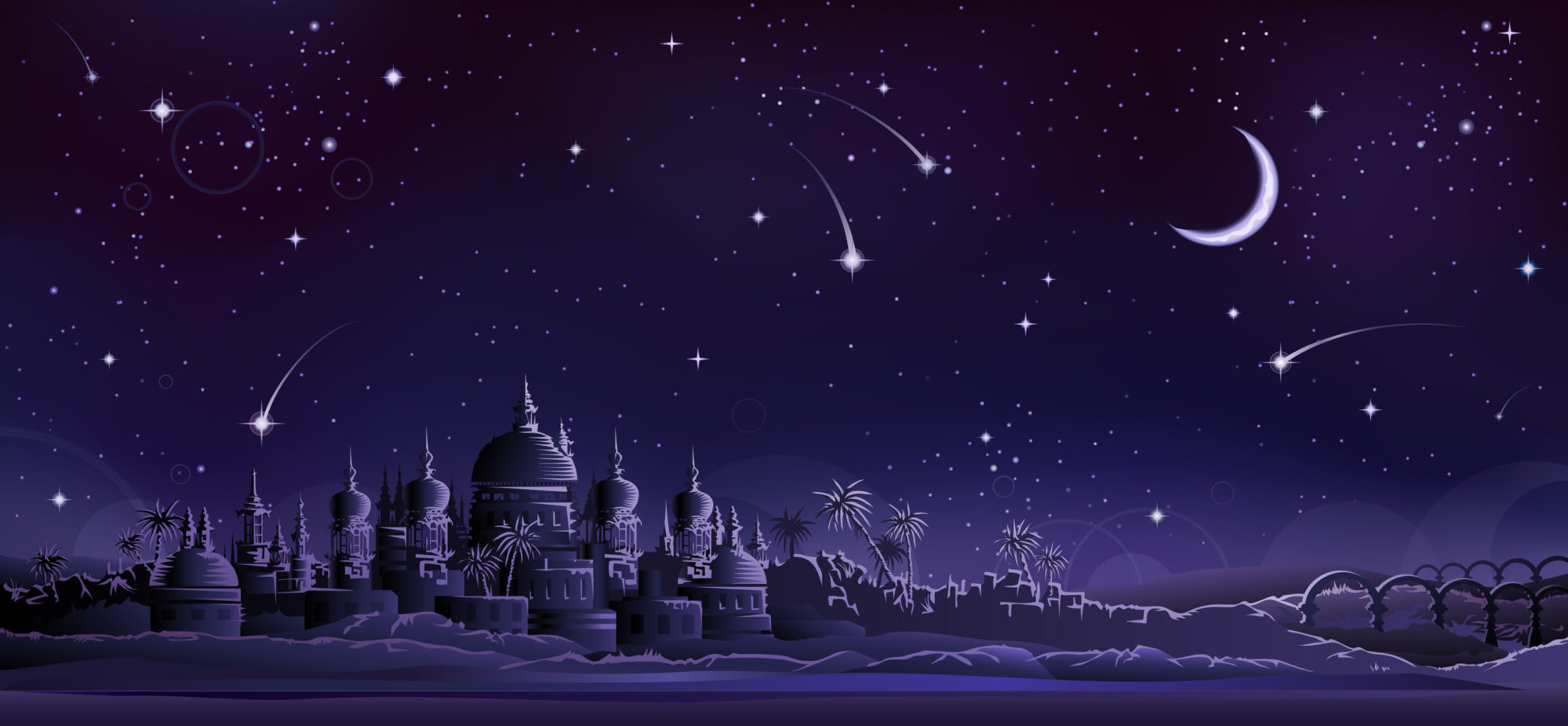
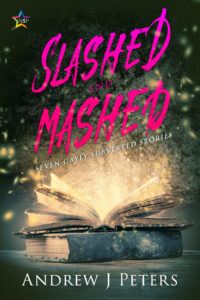

 At night, however, the writing happens, where demons, witches, and shapeshifters congregate around the kitchen table and general chaos ensues. The insurance company refuses to accept any more claims of ‘acts of the un-god’, and his husband of almost 22 years has very firmly put his foot down on any further wraith summonings in the basement. And apparently, imps aren’t house-trainable. Occasionally the odd ghost or member of the Fae community stops in for a glass of wine and stories are exchanged. Although the husband doesn’t know it, the two Chihuahuas are in cahoots with the spell casting.
At night, however, the writing happens, where demons, witches, and shapeshifters congregate around the kitchen table and general chaos ensues. The insurance company refuses to accept any more claims of ‘acts of the un-god’, and his husband of almost 22 years has very firmly put his foot down on any further wraith summonings in the basement. And apparently, imps aren’t house-trainable. Occasionally the odd ghost or member of the Fae community stops in for a glass of wine and stories are exchanged. Although the husband doesn’t know it, the two Chihuahuas are in cahoots with the spell casting.
 We also have the largest mall in North America if shopping is your thing. I avoid the mall at all costs. Too peopley.
We also have the largest mall in North America if shopping is your thing. I avoid the mall at all costs. Too peopley.
